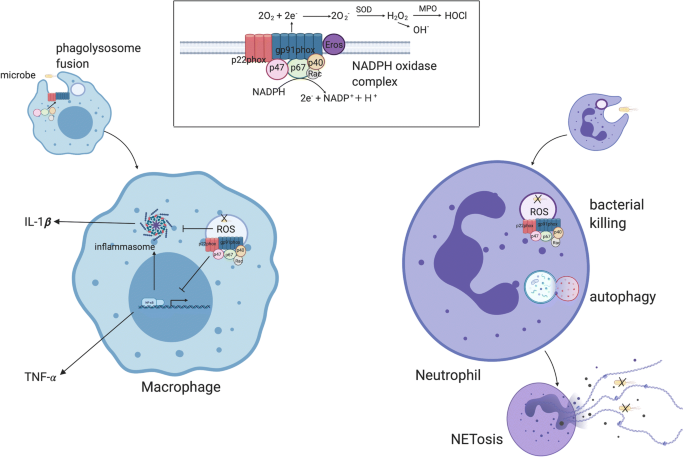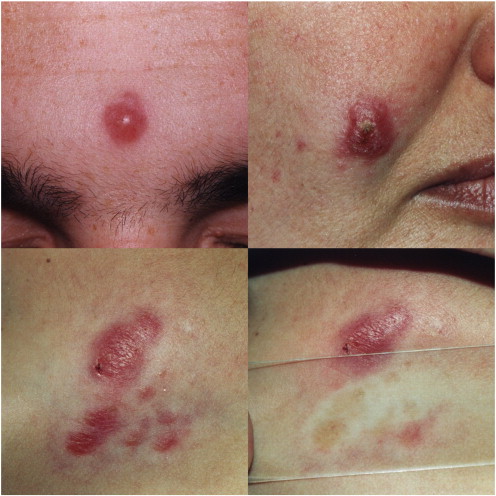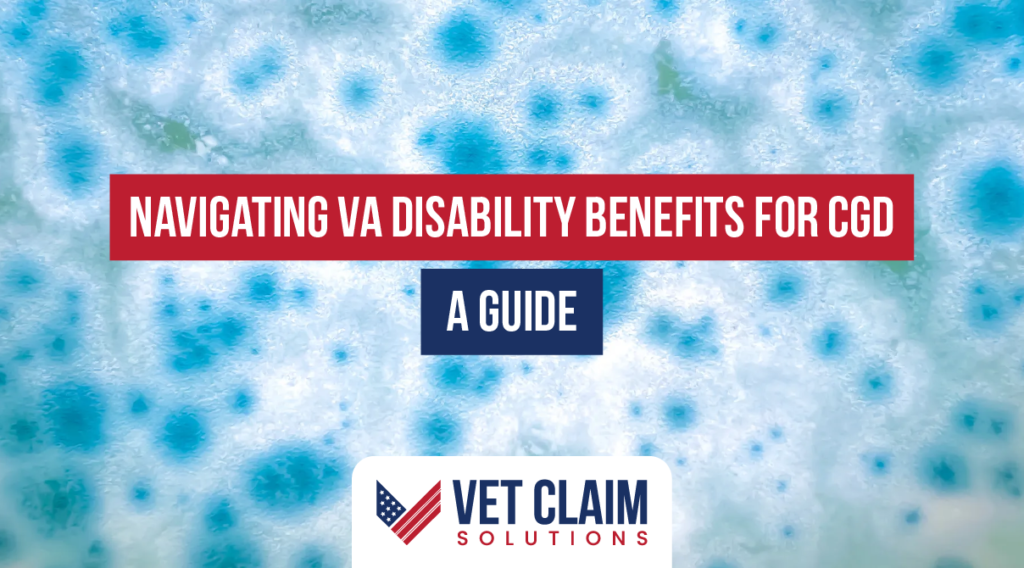Navigating the waters of VA Disability Benefits for Granulomatous Disease (CGD) can feel like charting unknown territory. But, with the right compass, veterans find their way to deserved support. Living with Chronic Granulomatous Disease alters not only an individual’s well-being but also their ability to sustain themselves and their families.
This piece demystifies the process from eligibility criteria to compensation claims. We’ll walk through establishing service connections possibly linked to burn pits or Agent Orange exposure and how secondary conditions could adjust your VA rating. Also, we’ll give you a heads-up on what to expect during Compensation and Pension exams.
Lastly, we tackle why legal help might be your next best step in securing benefits. By the end of this read, you’ll have a clearer path forward in claiming what’s rightfully yours.
Understanding VA Disability Benefits for Chronic Granulomatous Disease (CGD)

If you’re a veteran with Chronic Granulomatous Disease, navigating the world of VA disability benefits might seem like trekking through a maze. Affected veterans must grasp the significance of their eligibility for benefits, given that this ailment hampers the immune system’s defense against infections.
Chronic Granulomatous Disease, what’s that all about?
This genetic disorder weakens your immune response by impacting certain cells’ infection-fighting abilities. If you’ve been diagnosed with CGD after serving in the military, connecting this condition to your service could help secure vital support and compensation from the VA.
Eligibility Criteria for VA Benefits

To qualify for VA disability benefits, veterans must prove a direct link between their military service and CGD diagnosis. This involves establishing an in-service event or exposure that likely contributed to developing CGD and showing evidence of its impact on your health today.
Presumptive Service Connection for Granulomatous Disease
The Honoring Our PACT Act was a game-changer, creating a presumption of service connection for granulomatous disease in veterans exposed to burn pits and Agent Orange. This means if you served in specific locations and developed this condition, the VA might automatically link it to your service.
Impact of Burn Pits and Agent Orange

Veterans who breathed in toxic smoke from military burn pits or were exposed to Agent Orange face higher risks. Acknowledging these harmful exposures as triggers for chronic granulomatous disease streamlines the route for veterans to secure their rightfully earned benefits.
Recognizing this link is pivotal, as CGD hampers the immune defense against infections, presenting substantial health hurdles for those impacted. With this recognition, the road to securing support and recompense for ailments tied to their valiant duty is now less murky for veterans.
Secondary Conditions Associated with CGD

Chronic Granulomatous Disease (CGD) isn’t just a solo act; it often brings along some unwelcome guests. Secondary ailments such as inflammatory bowel syndrome and interstitial lung ailment play a pivotal role in altering the VA disability score, akin to unexpected twists in a plot. Imagine CGD as the lead singer in a band that decides to bring on some additional musicians – suddenly, the sound is more complex.
Navigating the intricate relationship between granulomatous disease and its consequential health complications is pivotal for veterans striving to optimize their VA entitlements. For instance, heart disease, kidney problems, and diabetes are also known culprits that hitch a ride with CGD. Recognizing them early on can make all the difference when filing your claim.
To get a better handle on how these conditions affect you personally and financially through disability ratings, dive into resources like VA Claims and Appeals Interactive Tool. It’s like having a roadmap through the tangled web of VA law.
Navigating the Compensation and Pension Exam

When veterans step into a Compensation and Pension (C&P) exam, especially for granulomatous disease claims, it’s like walking into a room where every detail matters. These exams may include respiratory tests to check lung function among other evaluations tailored to symptoms of CGD.
The C&P exam is your moment to connect the dots between your military service and current health status. Imagine it as assembling a jigsaw that illustrates the effects your military duties have had on you.
This pivotal assessment could influence your VA rating significantly because it assesses conditions directly linked or secondary to chronic granulomatous disease. Hence, understanding what these exams entail can demystify them, making them less daunting while ensuring you’re better prepared.
Resources and Tools for Understanding Your Rights
Finding the right information can feel like looking for a needle in a haystack. Hence, we’ve compiled vital tools aimed at aiding veterans in efficiently understanding and utilizing their VA entitlements. Our VA Disability Calculator lets you estimate potential disability payments, taking some of the guesswork out of your claims process

We also offer an interactive guide through our VA Claims and Appeals Interactive Tool, making it easier to understand each step. Navigating the complexities of VA benefits becomes less daunting with precise guidance, whether you’re initiating your journey or in need of advanced support.
Conclusion
Securing VA Disability Benefits for Granulomatous Disease (CGD) is a journey, not just a step. You’ve learned the ropes: from eligibility to navigating through claims and appeals. Remember, burn pits or Agent Orange could be key in linking CGD to your service.
Don’t overlook secondary conditions; they might boost your rating. The C&P exams are more than procedures—they’re your chance to prove how CGD affects you.
Legal help isn’t just an option; it’s often a necessity in cutting through red tape. With this knowledge, claiming what’s yours feels less daunting.
You now have the map to navigate these waters confidently—use it wisely.


